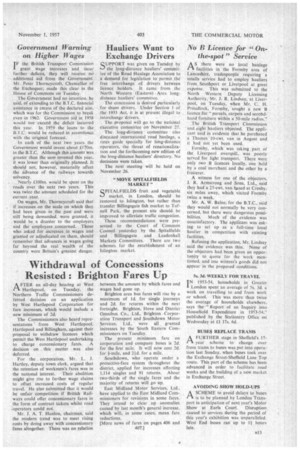Government Warning on Higher Wages
Page 47

If you've noticed an error in this article please click here to report it so we can fix it.
I F the British Transport Commission grant wage increases and incur further deficits, they will receive no additional aid from the Government. Mr. Peter Thorneycroft, Chancellor of the Exchequer, made this clear in the House of Commons on Tuesday.
The Government had no intention, he said, of extending to the B.T.C. financial assistance in excess of the declared aim. which was for the Commission to break even in 1962. Government aid in 1958 would not exceed the deficit incurred this year. In 1959 the loans to the 13.1..C. would be reduced in accordance with the original forecast.
in each of the next two years the Government would invest about £170m. in the B.T.C. Although this amount was greater than the sum invested this year, it was lower than originally planned. It should not, however, materially affect the advance of the railways towards solvency.
Nearly £100m. would be spent on the roads over the next two years. This was twice the amount scheduled for the current year.
On wages, Mr. Thorneycroft said that if increases on the scale on which they had been given in the past and were still being demanded, were granted, it would be a disaster to the employers and the employees concerned. Those who asked for increases in wages and granted or adjudicated on them, should remember that advances in wages going far beyond the real wealth of the country were Britain's greatest danger.
























































































































